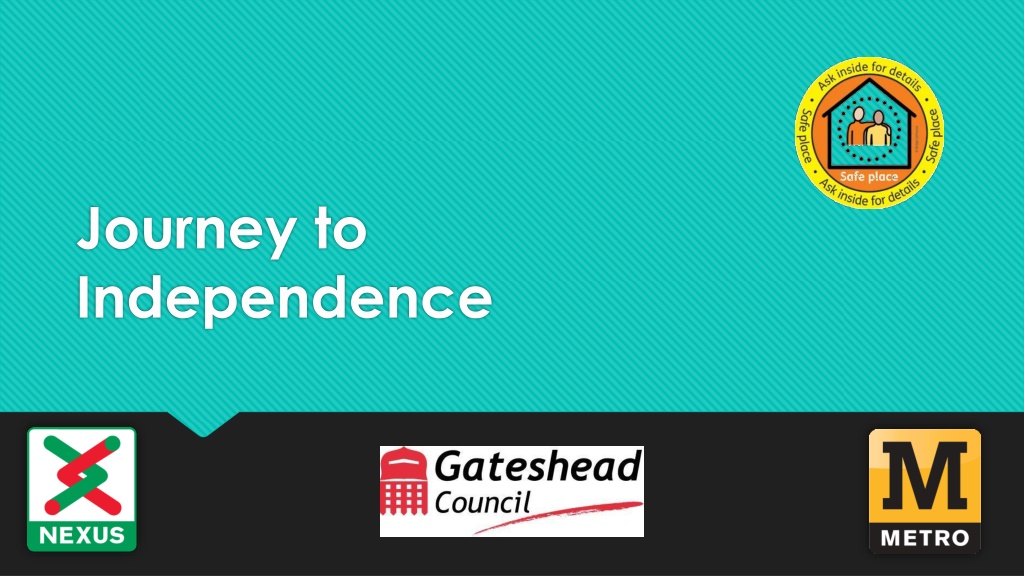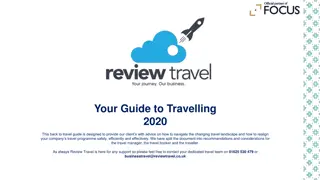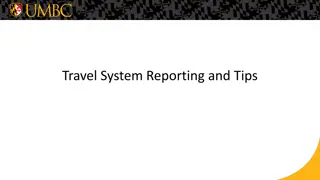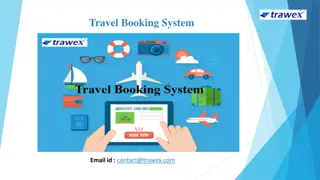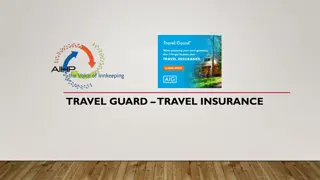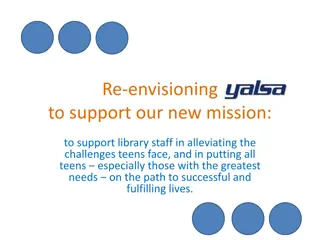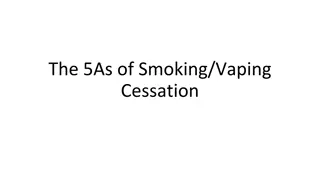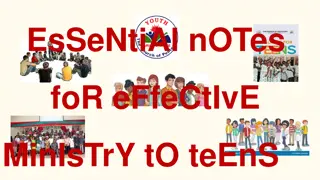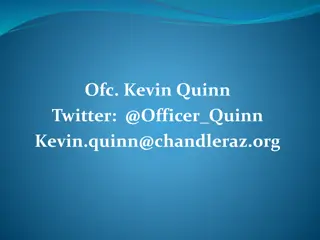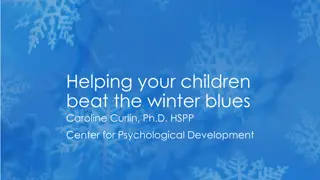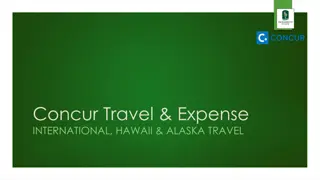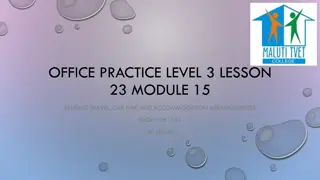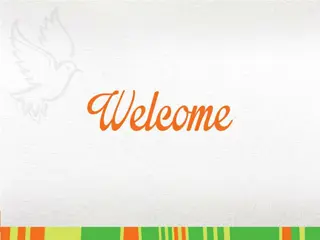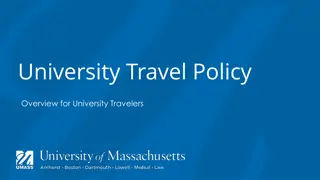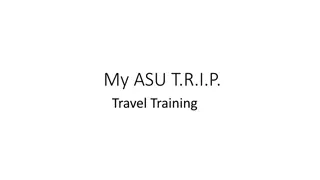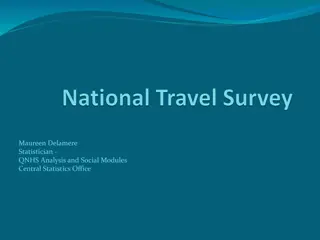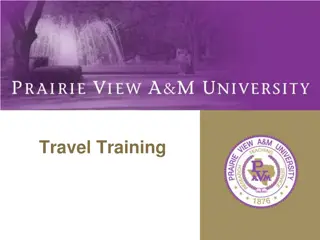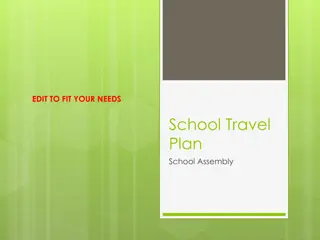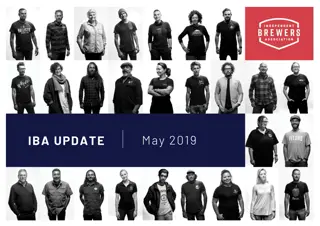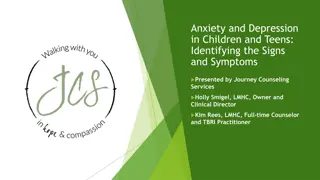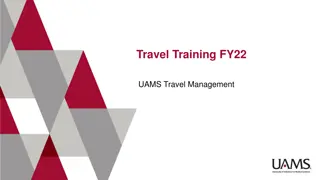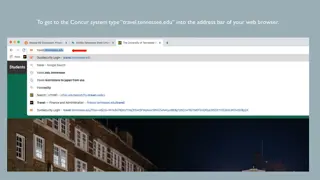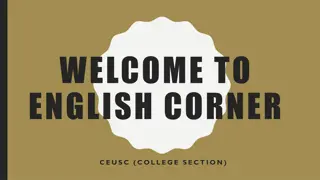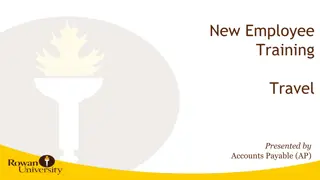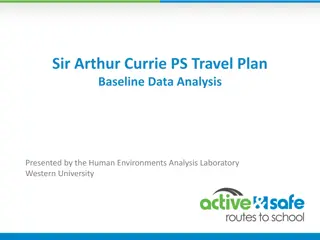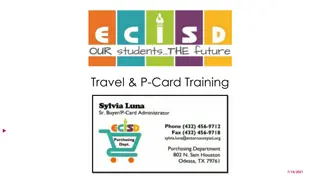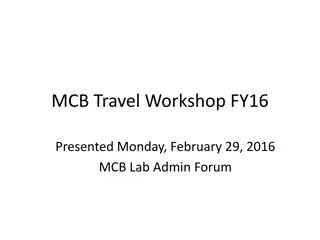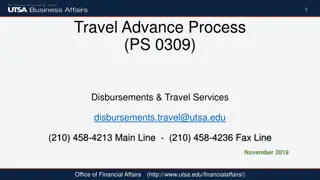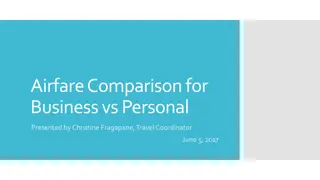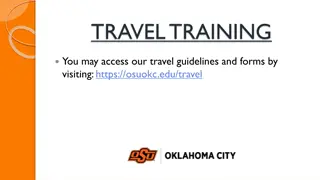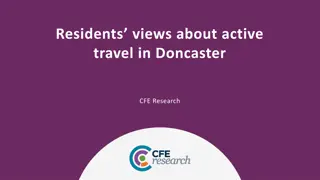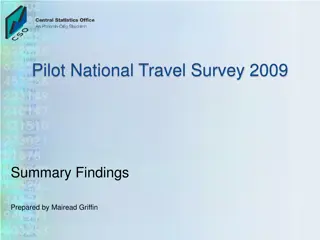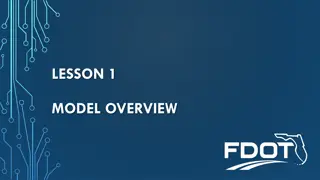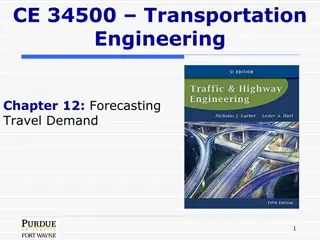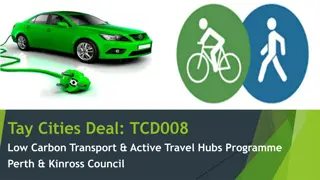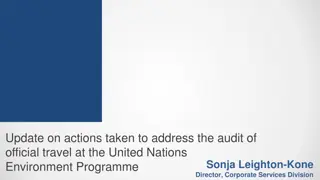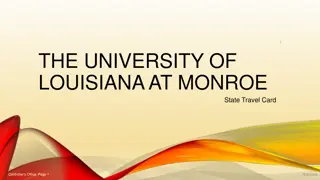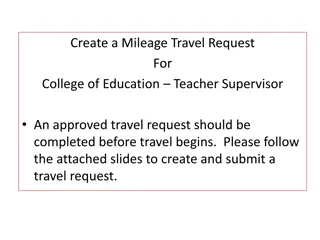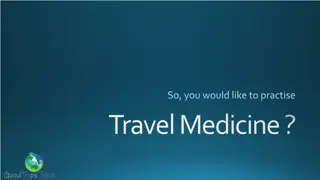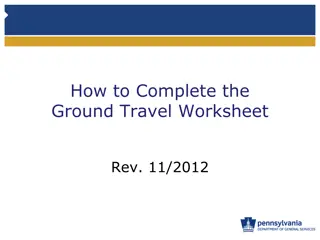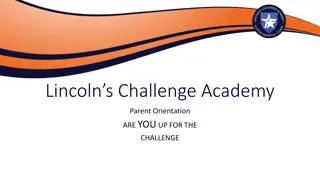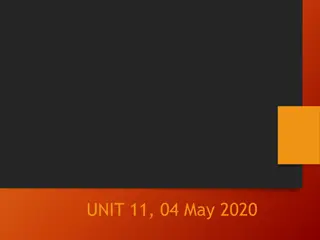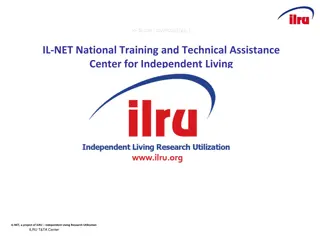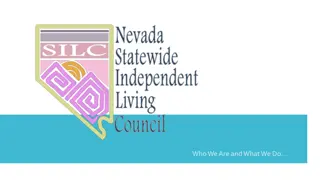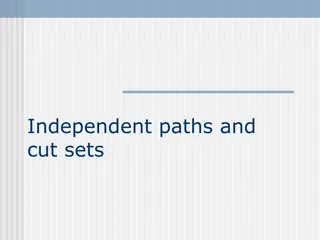Guide to Independent Travel for Children and Teens
This comprehensive guide focuses on helping children and teens journey independently, covering essential aspects such as getting started, learning the route, leaving the home prepared, on-route behaviors, return journey considerations, and dealing with various 'what if' scenarios. Each section provides detailed insights and tips to ensure a safe and successful independent travel experience.
Download Presentation

Please find below an Image/Link to download the presentation.
The content on the website is provided AS IS for your information and personal use only. It may not be sold, licensed, or shared on other websites without obtaining consent from the author. Download presentation by click this link. If you encounter any issues during the download, it is possible that the publisher has removed the file from their server.
E N D
Presentation Transcript
Journey to Independence
Getting started.. Bus pass (see Travel Care Options leaflet) Initial Establish knowledge and risk What they can do assessment checklist Any Any mobility issues behavioural problems Any phobias
Learning the route.. Know the bus number (or metro) and route in advance Establish natural cues Take the child on the journey Green cross code check (initial assessment road safety) What they do/not know (Discrepancy analysis) What they need to learn (Task analysis)
Leaving the home Money Bus pass Bridge card Mobile phone Emergency contact numbers Laminated key ring (see example) Key Bag Suitable clothing for the weather Medication
On route.. Did they tell him where they were going (destination) Did they wait in the queue at the bus stop Did they show the driver their pass Green cross code Safest place to cross Where do they sit on the bus (consider choice) Did they press the bell to stop the bus (in a timely way) Did they wait for the bus to stop before they got up Is their behaviour appropriate (reasons) Did they thank the driver
The return journey.. Have they done their checks when leaving school or college Did they choose the safest route back to the bus stop Did they use appropriate crossings Are they aware of the importance of emergency services On the bus consider same checks as before
What ifs? ring home or school Bus is late/doesn t turn up go back to school or home Missed the bus walk back from the next stop/cross the road and get the bus back / tell the driver and he can communicate to the bus coming the other way Miss their bus stop wait for the next bus or talk to a safe stranger (uniform) or call into a shop Get off at an earlier stop if in community go back home or school or speak to a safe stranger/safe place (see leaflet) If on the bus tell the driver/change seat Bullied or harassed ring home or school Left their belongings on the bus press bell to tell driver Unwell on the bus
Are they ready? Have they followed all of the steps see task analysis Have you reduced/faded your support Have they achieved independence a minimum of 5 times Have they problem solved along the way Have they discreetly been observed by someone else
I am the mother of C (15) and J (13). I am writing to say how happy I am with the work and help from Travel Trainer, Norma Nichol. Myself and my son are both deaf. Norma always spoke to us nice and slowly so we could hear what she said and always faced us when talking, allowing us to lip read if we couldn t hear what she said. Norma was very helpful. I suffer from anxiety and Post Traumatic Stress Disorder. Norma always reassured me that C was okay and did everything he should do (whilst training) which helped me with my anxiety and PTSD. Norma was always polite and on time and always kept me up to date. Feedback.. I am so glad Norma trained my son C as it has boosted his confidence. I look forward to Norma training my other son J. Well done Norma, keep up the good work and thank you so much for your help with my son C, I will see you soon when you train J.
If you could only know me For who I am instead of for who I am not There would be so much more to see Coz there's so much more that I've got. So long as you see me as unable or disabled Which supposedly means something I guess There's nothing you or I could ever do To make me a human success. A poem by Marc Gold Someday you will know That tests aren't built to let me stand next to you. By the way you test me All they can do is make me look bad Through and through. And some day soon I'll get my chance When some of you finally adapt. You'll be delighted to know That although I have additional needs I'm not at all handicapped.
